Stress management is a vital skill in today’s fast-paced world. Understanding how to effectively manage stress can lead to improved mental wellness and a more balanced life. In this guide, we’ll explore various techniques, their importance, and how to integrate them into your daily routine. We’ll also delve into creating a personalized stress management plan that caters to your specific needs. Whether you’re dealing with workplace stress or personal challenges, this comprehensive guide is here to support you on your journey to mental wellness.
Understanding the Importance of Stress Management
The Impact of Stress on Health
Stress management is crucial because chronic stress adversely affects both mental and physical health. Reducing stress can improve sleep, boost immune function, and enhance overall quality of life. The significance of stress management lies in its ability to empower individuals to cope with life’s challenges effectively. By implementing stress management strategies, we foster resilience, which is essential for dealing with everyday pressures.
Key Benefits of Effective Stress Management
- Improved sleep quality, leading to better cognitive function and mood stability.
- Enhanced immune response, reducing susceptibility to illnesses.
- Increased resilience, enabling better handling of life’s challenges.
Effective stress management practices not only improve individual well-being but also contribute to a more productive and harmonious environment, whether at work or home.
- Identify stressors: Recognize what triggers stress in your life.
- Develop coping strategies: Use techniques like mindfulness and exercise.
- Evaluate and adjust: Regularly assess the effectiveness of your strategies and make necessary changes.
By following these steps, individuals can create a personalized approach to managing stress, leading to a healthier and more balanced life.

Effective Techniques for Stress Reduction
Mindfulness and Physical Activity for Stress Relief
Mindfulness meditation is a powerful stress management tool that encourages present-moment awareness, helping individuals manage stress effectively. By focusing on the present, mindfulness reduces anxiety and promotes emotional stability. For instance, dedicating just 10 minutes daily to mindfulness can significantly decrease stress levels.
Physical activity, such as yoga or aerobic exercises, is another excellent stress relief technique. These activities increase endorphin levels, which are natural mood lifters. A study found that individuals who engage in regular physical activity report a 30% reduction in stress symptoms. Yoga, in particular, combines physical movement with mindfulness, offering a dual approach to stress reduction.
- Mindfulness meditation enhances emotional regulation and reduces anxiety.
- Yoga integrates physical exercise with mental relaxation, promoting holistic well-being.
- Aerobic exercises boost endorphins, improving mood and reducing stress.
Cognitive Techniques and Creative Outlets
Cognitive restructuring is a technique that helps individuals reframe negative thoughts, transforming stress into manageable challenges. This method involves identifying irrational beliefs and replacing them with positive, realistic thoughts. For example, viewing a stressful work deadline as an opportunity for growth rather than a threat can reduce anxiety.
Creative outlets like journaling provide an effective way to manage stress by allowing individuals to express emotions and gain clarity. Writing about stressful experiences can lead to insights and solutions, making stressors feel less overwhelming. A survey revealed that 75% of people who journal regularly experience a noticeable decrease in stress.
- Identify negative thoughts: Recognize and challenge irrational beliefs.
- Reframe perspectives: Replace negative thoughts with positive alternatives.
- Engage in creative expression: Use journaling to process emotions and gain clarity.
By incorporating these cognitive and creative techniques, individuals can effectively manage stress, leading to improved mental health and resilience.

Coping Strategies for Everyday Stressors
Building Resilience Through Effective Communication
Effective communication is a vital stress management tool that enhances relationships and reduces misunderstandings. By expressing feelings clearly, individuals can prevent conflicts and manage stress more efficiently. For example, discussing workload concerns with a supervisor can lead to better task distribution, alleviating stress.
Additionally, active listening plays a crucial role in stress relief techniques. It involves fully concentrating on the speaker, understanding their message, and responding thoughtfully. This practice not only strengthens connections but also reduces stress by fostering a supportive environment. A study found that teams practicing active listening reported a 25% decrease in workplace stress.
- Clear expression of emotions prevents conflicts and reduces stress.
- Active listening fosters supportive relationships, enhancing stress management.
- Open dialogue about stressors leads to collaborative problem-solving.
Balancing Life with Hobbies and Rest
Maintaining hobbies is an effective stress management practice that provides a creative outlet and promotes relaxation. Engaging in activities like painting or gardening can divert attention from stressors, offering a sense of accomplishment and joy. For instance, individuals who dedicate time to hobbies report feeling more balanced and less stressed.
Adequate rest is equally important in managing stress. Quality sleep rejuvenates the mind and body, enhancing resilience against daily challenges. Establishing a consistent sleep schedule can improve mood and cognitive function, making stressors more manageable. Research indicates that individuals who prioritize rest experience a 20% reduction in stress-related symptoms.
- Identify hobbies: Choose activities that bring joy and relaxation.
- Schedule regular breaks: Ensure time for rest and hobbies amidst daily tasks.
- Prioritize sleep: Maintain a consistent sleep routine for optimal stress management.
By integrating hobbies and ensuring adequate rest, individuals can manage stress effectively, leading to a more balanced and fulfilling life.

Creating a Personalized Stress Management Plan
Identifying Personal Stress Triggers and Responses
To manage stress effectively, begin by identifying your unique stress triggers and responses. This involves observing situations that cause stress and noting your emotional and physical reactions. For example, some might feel anxious in crowded places, while others may experience tension during work deadlines. Understanding these patterns is crucial for developing a tailored stress management plan.
Once you have identified your stressors, consider how your lifestyle factors, such as diet, exercise, and sleep, influence your stress levels. A balanced diet rich in nutrients can enhance your mood and energy levels, while regular exercise releases endorphins, reducing stress. Additionally, ensuring adequate sleep helps in maintaining emotional stability and resilience.
- Track stressors: Keep a journal to record stressful events and reactions.
- Analyze lifestyle: Assess how diet, exercise, and sleep affect your stress.
- Identify patterns: Recognize recurring stress triggers and responses.
By understanding these elements, you can create a personalized plan that addresses your specific needs, enhancing your ability to manage stress effectively.
Integrating Preferred Stress Relief Techniques
After identifying your stress triggers, the next step is to integrate stress relief techniques that resonate with you. This could include mindfulness practices, physical activities, or creative outlets. For instance, if you find solace in nature, regular walks in the park might be beneficial. Alternatively, if you enjoy creative expression, activities like painting or writing can serve as effective stress relief techniques.
Consistency is key in managing stress. Establish a routine that incorporates these techniques into your daily life. For example, dedicating time each morning for meditation or scheduling weekly yoga sessions can significantly reduce stress levels. A study shows that individuals who consistently practice stress management techniques report a 40% improvement in their overall well-being.
- Select techniques: Choose stress relief methods that suit your preferences.
- Establish a routine: Integrate these techniques into your daily schedule.
- Monitor progress: Regularly assess the effectiveness of your plan.
By crafting a personalized stress management plan, you create a structured approach to achieving mental wellness and resilience, tailored to your unique lifestyle and preferences.
Implementing Stress Management Practices at Work
Creating a Supportive Work Environment
Creating a supportive work environment is essential for effective stress management. Encouraging open communication among team members can significantly reduce workplace stress. For instance, regular team meetings where employees can voice concerns and suggest improvements foster a sense of belonging and reduce anxiety. Additionally, promoting a culture of mutual respect and understanding helps in managing stress effectively.
Another key aspect is providing resources for stress relief techniques, such as access to wellness programs or mindfulness sessions. These initiatives not only help employees manage stress but also enhance overall job satisfaction. A study found that companies with robust wellness programs reported a 25% increase in employee productivity. By integrating these practices, workplaces can create an environment that supports both mental well-being and professional growth.
- Open communication channels enhance team cohesion and reduce stress.
- Access to wellness programs supports mental health and job satisfaction.
- Mutual respect fosters a positive and stress-free work culture.
Implementing Practical Stress Management Strategies
Implementing practical stress management strategies at work involves organizing tasks and setting clear boundaries. For example, using task management tools can help prioritize and delegate tasks efficiently, reducing the feeling of being overwhelmed. Setting boundaries, such as designated work hours, ensures a healthy work-life balance, preventing burnout.
Regular breaks are also crucial for stress reduction. Encouraging employees to take short breaks throughout the day can improve focus and productivity. Research indicates that taking breaks every 90 minutes can boost productivity by 20%. By incorporating these strategies, workplaces can effectively manage stress, leading to a more productive and harmonious environment.
- Organize tasks: Use tools to prioritize and manage workload efficiently.
- Set boundaries: Establish clear work hours to maintain balance.
- Encourage breaks: Promote regular short breaks to enhance focus and reduce stress.
By adopting these practical strategies, workplaces can create a supportive environment that not only manages stress but also enhances overall productivity and employee satisfaction.
Innovative Stress Management Techniques for Enhanced Well-being
Proven Strategies for Coping with Everyday Stressors
Personalized Stress Management Plans for Optimal Results
Frequently Asked Questions
What are some effective stress management techniques?
How can I create a personalized stress management plan?
What role does effective communication play in stress management?
How can stress management practices be implemented at work?
Why is mindfulness important for stress management?
Discover the path to holistic wellness and rejuvenate your mind and body with Vitalica Wellness. Call us today for a free consultation and start your journey towards a healthier you!
